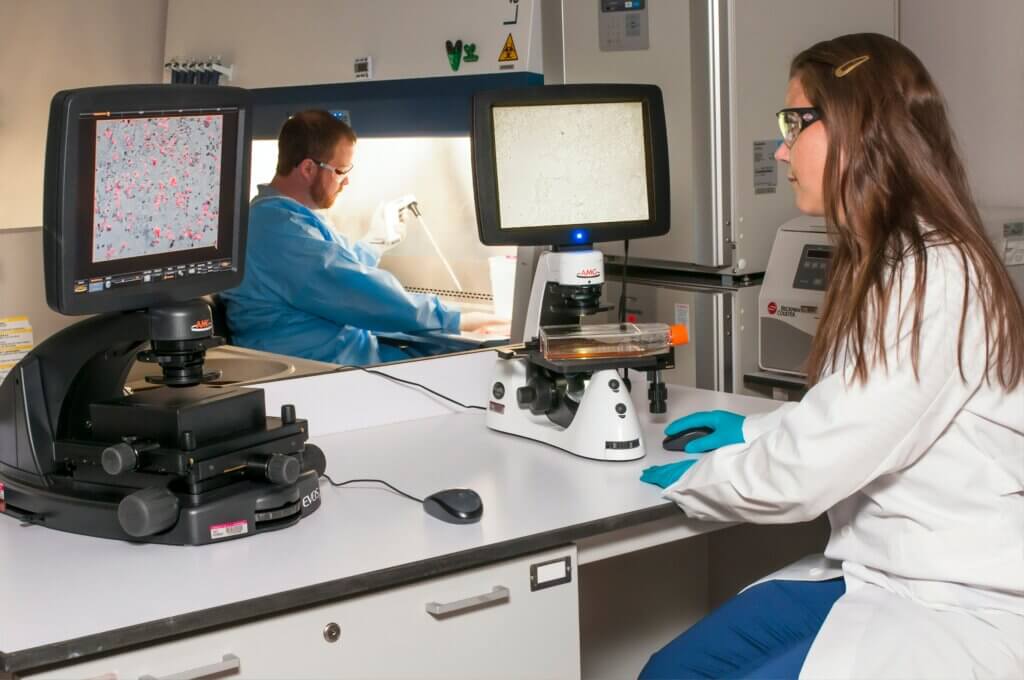What can I do with a biology degree?
Biology, often referred to as life sciences, is a very popular degree. Some students will choose biology in preparation for medical school; however, it’s important to know that a degree in biology will also open many doors to other careers. Some of the most popular career choices following a biology degree include food scientists, science writers, nature conservation officers and forensic scientists. However, a biology degree can also be a great stepping stone into various other areas of employment.
Job options
Natural career paths following a biology degree:
- Environmental policy analyst
- Wildlife biologist
- Geneticist
- Ecologist
- Data analyst
- Science writer or science journalist
- Environmental consultant
- Science policy analyst
- Food scientist
- Climate change analyst
Career paths (transferable skills):
- Cardiac sciences
- Dentist
- Health improvement practitioner
- Medical science liaison
- Prosthetist/orthotist
- Science writer
- Sustainability consultant
- Vet
These should only be used as a guide. Many employers will accept applications from students that have studied various degrees.
Work experience
Those wanting to find a career in the area of biology should investigate doing an industry placement, pre-entry work is valued highly. Having pre-entry work will show that you are passionate and committed to a career in the sector. It will also put you ahead of your competition and advance your skill set. Having work experience will also help if you want to gain valuable insight into the industry and see where your skills match. Some biology courses will offer a year’s placement where you may be eligible for a bursary or grant to support. You can also get in touch with some local organisations directly to see whether they have any part-time vacancies that will enhance the skills learnt through your course such as:
- Non-profit organizations
- Botanical gardens or arboretums
- Environmental consulting firms
- Government agencies
- Environmental education centers or programs
- Renewable energy companies
- Ecotourism companies
- Environmental engineering firms
Typical employers
Typical employers of biology graduates include:
- Research institutions and laboratories
- Pharmaceutical and biotechnology companies
- Environmental agencies and organisations
- Academic institutions and universities
- Healthcare and medical institutions
- Government agencies (such as departments of health or agriculture)
- Conservation and environmental consulting firms
- Biomedical companies
- Food and beverage industries (for quality control and safety)
- Forensic science laboratories
- Zoos and wildlife centres
- Agricultural and crop science companies
How to enhance your CV
A biology degree will provide you with the basic foundations needed to get your foot in the door to the industry. Alongside this, you will also develop various practical and technical skills as well as more general skills that will also enhance your CV.
Make sure you highlight the following on your CV:
- Communicating effectively through writing reports and giving presentations.
- Collaborating and working well in teams through group projects and seminars.
- Being able to work independently.
- Being organised and managing time effectively to meet coursework deadlines.
- Having basic numerical and mathematical skills.
- Being proficient in using computers and technology.
- Conducting research and analysing data.
- Solving problems and thinking creatively.
- Managing projects.
- Being self-reliant, taking initiative, and having awareness of business principles.
Further study
Further study is a popular route for biology students upon graduation. This is usually because they have a passion for a specific area of biology or a related subject that they would like to specialise in such as teaching, medicine or law. Having this additional knowledge and expertise may enhance your profile and set you ahead of your competition in a competitive market. However, it is important that you have done your research beforehand and are certain about the route you would like to take and that it matches with your career goals.
What are biology graduates doing?
Almost a fifth (18%) of biology graduates are employed in a related profession, with natural and social science professions being the most popular (9%) in addition to science, engineering and production technicians. Other graduates have decided to go into a career vertical where their skills have been transferable such as business, sales, marketing.
Related Courses
The course aims to give you a balance of theory and application of a range of techniques relevant to the biomedical sciences such as medical genetics, disease pathology, research design and biomedical quality control. The programme was designed with input from biomedical scientists, research scientists and bioscience experts. It combines the best elements of biomedical science with an appreciation of the advanced technologies important in healthcare provision.
Get ready to pursue a career in the zoological sciences with UWS’s BSc (Hons) Applied Bioscience & Zoology degree. You’ll receive a grounding in biological and environmental science before progressing to study more advanced bioscience topics. The programme will equip you with the practical and transferable skills for a rewarding career in the life sciences sector in Scotland or abroad. Our highly qualified and experienced team will deepen your understanding of bioscience and the range of career options and professional accreditations available to you upon graduation.


